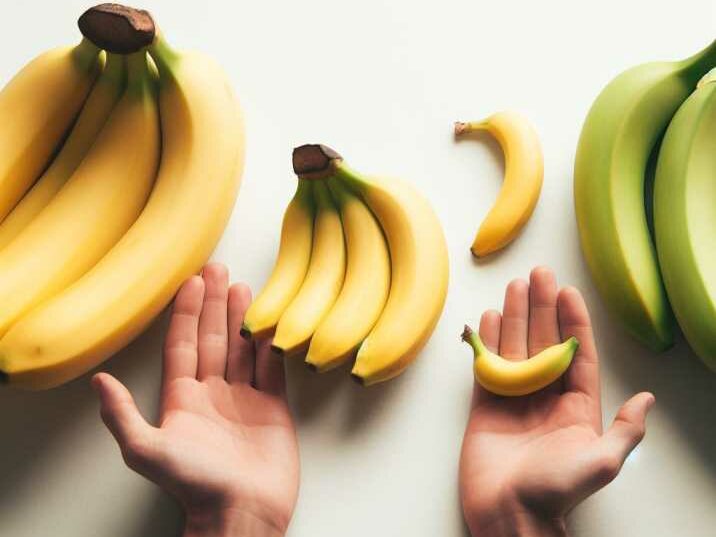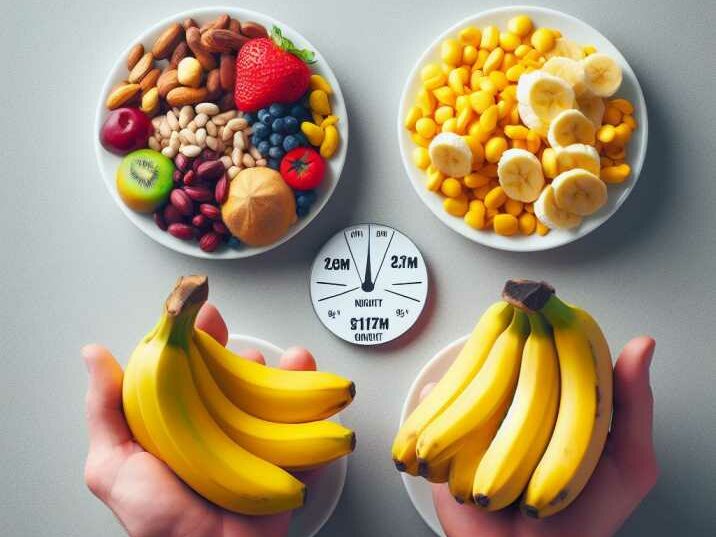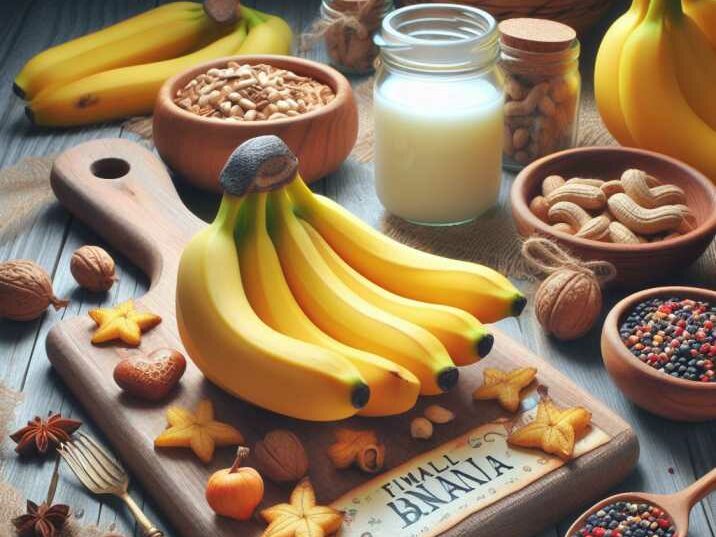Introduction
Table of Contents
Small Bananas May Be Healthier Than Big Bananas
Bananas, one of nature’s perfect snacks, have long been a staple in our diets. However, the question of whether small bananas trump their larger counterparts in terms of health benefits has intrigued many. In this article, we will peel back the layers of this debate and explore the nutritional nuances of small and big bananas.

Are Size Matters?
Unveiling the Nutritional Differences
When it comes to bananas, size does matter, but not necessarily in the way you might think. Let’s dissect the nutritional content of small and big bananas to determine which packs a more potent health punch.
1. Nutrient Density:
Small but Mighty
Small bananas may be diminutive in size, but they are mighty in terms of nutrient density. Packed with essential vitamins and minerals, small bananas deliver a concentrated dose of goodness in every bite. They are particularly rich in potassium, vitamin C, and vitamin B6.

2. Caloric Content:
The Balancing Act
While big bananas might be larger in size, they also carry a higher caloric load. This can be advantageous for those seeking a quick energy boost, but for those mindful of calorie intake, small bananas provide a more controlled and portion-friendly option.
3. Sugar Content:
Sweet Sensibility
Both small and big bananas contain natural sugars, but the smaller variety tends to have a slightly higher sugar content per gram. However, this doesn’t necessarily make them less healthy. The natural sugars in bananas come with fiber, which aids in slower sugar absorption and better blood sugar control.
4. Fiber Content:
The Digestive Ally
In addition to their vitamin and mineral content, both small and big bananas are rich in dietary fiber. Fiber plays a crucial role in supporting digestive health, promoting a feeling of fullness, and aiding in weight management. Small bananas, while packing a concentrated nutritional punch, may have a slightly higher fiber content per gram, making them an excellent choice for those prioritizing digestive well-being.
Fiber is a dietary superhero that contributes to a healthy gut microbiome, aiding in the prevention of constipation and promoting regular bowel movements. Small bananas, with their higher fiber density, can provide individuals with an effective tool for maintaining optimal digestive function. This aspect makes them particularly valuable for those looking to enhance their overall gut health.

5. Antioxidant Levels:
Small, but Potent
Antioxidants are compounds that help combat oxidative stress in the body, contributing to overall health. Small bananas, despite their size, boast potent antioxidant levels, particularly due to their higher concentration of certain phytochemicals. Incorporating small bananas into your diet can thus contribute to a robust defense against oxidative damage.
These antioxidants play a crucial role in neutralizing free radicals, reducing inflammation, and supporting the body’s natural defense mechanisms. While big bananas also contain antioxidants, the smaller variety offers a more concentrated dose, potentially amplifying their positive impact on cellular health.
Conclusion:
Peeling Away the Myths
In conclusion, the size of a banana does influence its nutritional profile, but the concept of one being inherently healthier than the other is a nuanced discussion. Small bananas offer concentrated nutrients, while big bananas provide a larger energy boost. The key is moderation and understanding individual nutritional needs.
FAQs: Your Burning Questions Answered
- Q: Are small bananas better for weight loss? A: Small bananas can be a good choice for weight management due to their lower caloric content.
- Q: Do big bananas have more potassium? A: Yes, big bananas generally have a higher potassium content.
- Q: Are small bananas better for controlling blood sugar? A: The fiber in small bananas helps in better blood sugar control.
- Q: Can I eat big bananas before a workout? A: Yes, the higher caloric content in big bananas can provide an energy boost before workouts.
- Q: Which type of banana is better for children? A: Small bananas, being more portion-friendly, can be a suitable choice for children.
- Q: Do big bananas have more vitamins? A: Big bananas may have a slightly higher vitamin content due to their larger size.
- Q: Are small bananas more expensive? A: Prices can vary, but small bananas are often more cost-effective.
- Q: Can I substitute big bananas for small ones in recipes? A: Yes, but adjust the quantity to maintain the desired taste and texture.
- Q: Do small bananas have a different taste? A: Small bananas may have a more intense flavor due to their concentrated nature.
- Q: Can I freeze both small and big bananas? A: Yes, both types can be frozen for later use in smoothies or baking.
- Q: Are small bananas genetically modified? A: No, both small and big bananas available in the market are not genetically modified.
- Q: Are small bananas more eco-friendly? A: Smaller bananas generally have a lower environmental impact in terms of production and transportation.
